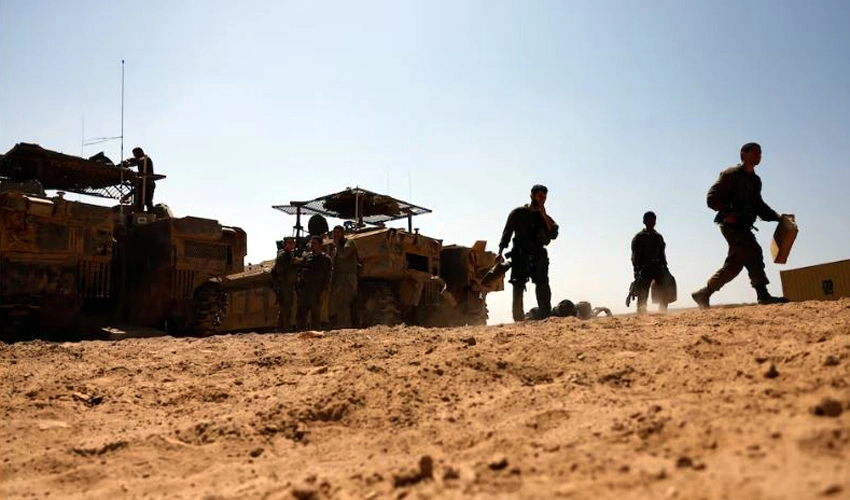Israel pledges response to Iran strikes as allies push restraint

JERUSALEM (AFP) - Israel's armed forces chief has vowed to respond to Iran's unprecedented attack against the country, even after appeals for restraint poured in from world leaders fearing wider regional conflict.
During six months of war between Israel and Iran-backed militant group Hamas in Gaza, Iran's proxies around the region have stepped up attacks on Israel and its allies, saying they are acting in support of Palestinians in Gaza. Tensions were already high before Iran launched its first-ever assault on Israeli territory, firing hundreds of missiles and drones in retaliation for a deadly April 1 strike on the Iranian consulate in Damascus.
"This launch of so many (Iranian) missiles, cruise missiles, and UAVs into the territory of the State of Israel will be met with a response," Israeli armed forces chief Lieutenant General Herzi Halevi said Monday, addressing troops at the Nevatim airbase, which was hit in Iran's Saturday night barrage.
The Israeli army has said the vast majority of the weapons were shot down – with the help of the United States and other allies – and the attack caused only minimal damage. Western governments, including those that supported Israel in its defence, have warned against an escalation, and Prime Minister Benjamin Netanyahu met with his war cabinet late Monday to discuss next steps, Israeli media reported.
Iran has previously said it would consider the matter 'concluded' unless Israel retaliated, and Foreign Minister Hossein Amir-Abdollahian told his Chinese counterpart in a call on Tuesday that Iran was 'willing to exercise restraint' and had no intention of further escalating tensions.
China's top diplomat Wang Yi said it was 'believed that Iran can handle the situation well and spare the region further turmoil'. The United States has repeatedly appealed to China – a close partner of Iran and a top buyer of its US-sanctioned oil – to use its influence over Tehran to manage tensions in the Middle East.
No more 'strategic patience'
Israel on Monday issued its first official comment on the strike on the Iranian consulate in Syria that prompted Tehran's weekend attack. "These were people who engaged in terrorism against the State of Israel," Israeli military spokesman Daniel Hagari said. "There was not a single diplomat there as far as I know."
The strike killed seven Iranian Revolutionary Guards, two of them generals. Iran has portrayed its retaliatory missile and drone barrage as the first act in a tough new strategy. The Iranian president's deputy chief of staff for political affairs, Mohammad Jamshidi, wrote on X that the "era of strategic patience is over", and further targeting Iranian personnel and assets "will be met with a direct and punishing response".
The head of the UN's atomic watchdog revealed on Monday that Iran had temporarily closed its nuclear facilities over "security considerations" after launching its retaliatory attack. International Atomic Energy Agency chief Rafael Grossi said the facilities were expected to reopen on Monday but his inspectors would not be returning until Tuesday, or when "we see that the situation is completely calm".
US President Joe Biden has told Netanyahu that Washington would not offer military support for any retaliation against Iran, according to a senior US official. British Foreign Secretary David Cameron and French President Emmanuel Macron were also among those urging restraint.
Secretary of State Antony Blinken said Washington did not "seek escalation, but we'll continue to support the defence of Israel". US House Speaker Mike Johnson announced that a vote on a fresh package of military aid for Israel could come as early as Friday. The package has been stalled in the House by right-wing members of Johnson's Republican party who oppose new military funding for Ukraine also included in the bill.







